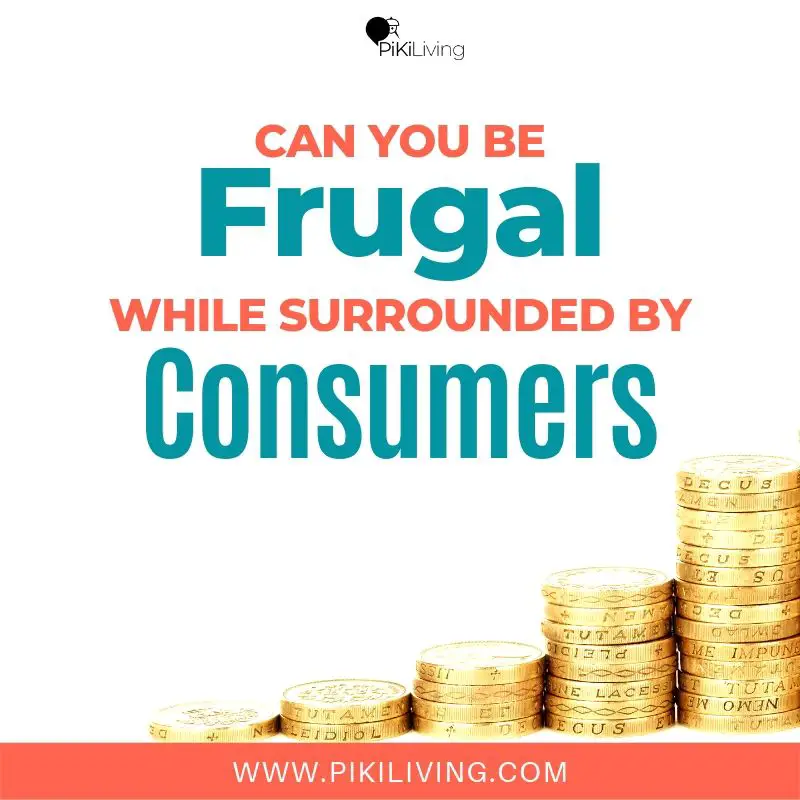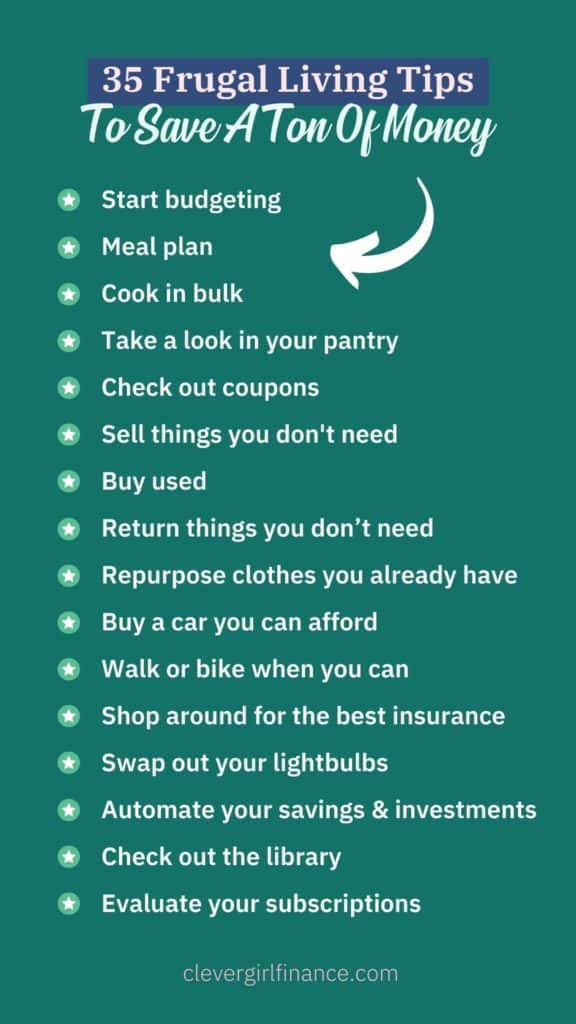Introduction
In today’s consumer society, where material possessions and the pursuit of wealth dominate our culture, adopting a frugal lifestyle may seem daunting. However, being frugal doesn’t mean depriving oneself of the things we need or sacrificing our quality of life. Instead, it encompasses making thoughtful choices, prioritizing our values, and adopting cost-effective strategies to thrive in this consumer-driven world.
Challenges
One of the greatest challenges of being frugal in a consumer society is the constant pressure to keep up with the latest trends and societal expectations. We are bombarded with advertisements enticing us to spend our hard-earned money on unnecessary luxuries, making it difficult to resist impulsive purchases. Moreover, the fear of missing out on experiences or being judged for not having the latest gadgets can create a sense of social pressure, making it tough to stay true to our frugal goals.
Solutions
To overcome these challenges, it is essential to cultivate a frugal mindset and adopt strategies that promote wise spending habits. One effective solution is setting clear financial goals and establishing a budget that aligns with our values and priorities. By consciously evaluating our needs versus wants, we can make informed decisions about how and where to allocate our resources.
Another solution is embracing the concept of minimalism. By decluttering our lives and maintaining a minimalist approach to possessions, we can reduce the desire for unnecessary material goods and focus on what truly brings us joy and fulfillment. This shift in mindset not only saves us money but also frees up mental and physical space for what truly matters.
Moreover, frugality extends beyond our spending habits. It includes adopting environmentally friendly practices, such as reducing waste, reusing items, and embracing sustainable alternatives to everyday products. By minimizing our ecological footprint, we are not only saving money but also contributing to a healthier planet.
being frugal in a consumer society requires conscious efforts, mindset shifts, and adopting practical strategies. By prioritizing our values, setting clear financial goals, embracing minimalism, and adopting sustainable practices, we can thrive in this consumer-driven world without sacrificing our financial stability or compromising our quality of life. So let’s embark on a frugal journey that empowers us to make intentional choices and enjoy the true abundance that comes from living a purposeful and fulfilling life.

Understanding Frugality
Definition of frugality
Frugality is a conscious and deliberate choice to live within one’s means, prioritizing financial responsibility and mindful spending. It involves being resourceful, creative, and practical while making purchasing decisions. Frugal individuals aim to maximize the value obtained from their money by seeking out affordable options, avoiding unnecessary expenses, and making careful choices about where and how they spend.
Benefits of adopting a frugal lifestyle
Embracing a frugal lifestyle has numerous advantages that can significantly impact one’s financial well-being and overall quality of life. Firstly, being frugal allows me to save money, which in turn provides financial security and opens doors to future opportunities. With a focus on needs over wants, I am able to cut unnecessary spending, pay off debts, and build an emergency fund.
Secondly, adopting a frugal mindset allows me to be more mindful of my consumption habits, promoting sustainability and reducing waste. By reusing and repurposing items, shopping responsibly, and embracing minimalism, I am able to contribute positively towards the environment and minimize my carbon footprint.
Moreover, frugality cultivates a sense of self-discipline and self-control. By resisting the constant temptation of impulse buying and making intentional choices, I am able to prioritize my long-term financial goals and invest in experiences that truly matter to me. This mindset shift enhances my overall satisfaction and contentment, as I focus on what brings true joy and fulfillment to my life.
understanding frugality is the first step towards thriving in a consumer society. By defining frugality and exploring its benefits, we can see how it empowers individuals to take control of their finances, embrace sustainability, and find contentment within a world driven by consumerism. So, let’s delve deeper into the world of frugality and discover practical strategies and solutions to thrive in this consumer-centric society.

Being Frugal in a Consumer Society: Challenges and Solutions
The Culture of Consumerism
In today’s society, consumerism has become deeply ingrained in our lives. We are constantly bombarded with advertisements, enticing us to buy more and more. As a result, a culture of consumerism has emerged, where the value of material possessions and instant gratification takes precedence over thoughtful spending and frugality.
Impact of consumerism on society
The impact of consumerism on society is far-reaching. It has contributed to an unsustainable lifestyle, where the pursuit of endless possessions has led to an overconsumption of resources. This has led to environmental degradation, as well as social and economic inequalities. Moreover, the pressure to conform to societal standards and trends has placed a burden on individuals and families, leading to financial stress and debt.
Rise of materialism and its consequences
The rise of materialism in a consumer society has resulted in a focus on external validation and the accumulation of possessions as a measure of success and happiness. However, this constant pursuit of material wealth often leaves individuals feeling empty and unfulfilled. It can also negatively impact mental health, as the pressure to keep up with societal expectations and maintain a certain lifestyle becomes overwhelming. Frugality offers an alternative approach, emphasizing the satisfaction derived from mindful spending, saving for the future, and focusing on experiences rather than material possessions.
Being frugal in a consumer society requires a shift in mindset and a willingness to challenge societal norms. It means questioning the value and necessity of every purchase, and making conscious choices that align with one’s personal values and long-term goals. By practicing frugality, individuals can break free from the cycle of consumerism and find a sense of empowerment and contentment in living a simpler, more sustainable life.
the culture of consumerism in today’s society presents numerous challenges. However, by adopting a frugal lifestyle and focusing on mindful spending, individuals can thrive and find fulfillment amidst the temptations of a consumer-driven world. Let us embrace frugality as a way to not only save money but also to lead a more meaningful and purposeful life.

Being Frugal: How to Thrive in a Consumer Society
Challenge #1: Overcoming the Pressure to Consume
Effects of societal pressure on spending habits
Living in a consumer society can be overwhelming, with advertisements bombarding us from every direction and our peers constantly flaunting their latest purchases. The pressure to consume is ever-present, making it challenging to maintain a frugal lifestyle. It’s important to understand the effects of this societal pressure on our spending habits, as it helps us navigate the path to financial freedom.
When we succumb to societal pressure, we often engage in impulsive purchases and unnecessary spending. Advertisements create a false sense of urgency, making us believe that we need the latest gadgets or trendy fashion accessories to be happy. However, these purchases are often short-lived sources of gratification, leaving us with a cluttered home and depleted bank accounts. By recognizing the influence of societal pressure on our spending habits, we can break free from this cycle.
Strategies to resist social norms and expectations
Overcoming the pressure to consume requires conscious effort and a commitment to frugality. One effective strategy is to cultivate a minimalist mindset. By decluttering our lives and focusing on the things that truly matter, we can resist the temptation to constantly acquire more material possessions. This not only helps us save money, but also brings a sense of freedom and contentment.
Setting clear financial goals is another powerful strategy. By defining our priorities and aligning our spending habits with these goals, we can resist the influence of societal pressure. It’s important to remember that our worth is not determined by the things we own, but by the values we uphold and the relationships we cultivate.
Building a supportive community can also be instrumental in overcoming the pressure to consume. Surrounding ourselves with like-minded individuals who value frugality and prioritize financial well-being creates a positive environment where we can thrive. By sharing tips, experiences, and successes, this community reinforces our commitment to living a frugal lifestyle.
while it may be challenging to resist the pressure to consume in a consumer society, it is possible to thrive by embracing a frugal lifestyle. By recognizing the effects of societal pressure on our spending habits, implementing strategies to resist social norms and expectations, and building a supportive community, we can navigate the consumer-driven world while maintaining our financial stability and personal fulfillment. Remember, the key to thriving lies not in what we buy, but in the choices we make.
Challenge #2: Budgeting for a Frugal Life
Importance of budgeting for financial stability
One of the major challenges that I have encountered on my frugal journey is the need for careful budgeting in order to maintain financial stability. Living frugally in a consumer society can be difficult, especially with the constant pressure to spend and indulge in unnecessary purchases. However, by creating and sticking to a frugal budget, I have been able to thrive and find financial freedom.
Budgeting is crucial for anyone, regardless of their financial situation. It provides a clear roadmap of where your money is going and helps you prioritize your expenses. For those of us trying to live a frugal lifestyle, budgeting becomes even more essential. It allows me to allocate my limited resources to the things that truly matter, such as saving for emergencies or investing in experiences that enrich my life.
Tips for creating and sticking to a frugal budget
Creating a frugal budget requires careful planning and discipline, but it is certainly achievable with a few simple strategies. Firstly, I recommend tracking your expenses diligently for a month or two to understand where your money is going. This will help you identify areas where you can cut back and find ways to save.
Next, set realistic financial goals for yourself. Whether it’s paying off debt, saving for a down payment on a house, or building an emergency fund, having a specific target will motivate you to stick to your budget. Make sure to break your goals into smaller, manageable steps and celebrate your progress along the way.
To ensure that you stick to your frugal budget, it is important to be mindful of your spending habits. Avoid impulse purchases by implementing a 24-hour waiting period for non-essential items. Additionally, I find it helpful to adopt a minimalist mindset and focus on experiences rather than material possessions.
budgeting is a crucial aspect of thriving in a consumer society while living frugally. By prioritizing our expenses, setting realistic goals, and being mindful of our spending habits, we can create a frugal budget that promotes financial stability and allows us to thrive in a society that encourages excessive consumption. So, let’s embrace the power of budgeting and take control of our financial futures.

Challenge #3: Finding Affordable Alternatives
In today’s consumer-driven society, it can be challenging to resist the constant temptation to spend beyond our means. However, by embracing a frugal lifestyle, we can not only save money but also thrive in a world that encourages excessive consumption. One of the key challenges of being frugal is finding affordable alternatives that allow us to meet our needs without breaking the bank. In this section, I will discuss two effective strategies to overcome this challenge: exploring thrift stores and second-hand markets, and embracing the DIY culture for cost-effective solutions.
Exploring Thrift Stores and Second-hand Markets
Thrifting has become increasingly popular in recent years, and for good reason. By browsing through thrift stores and second-hand markets, I have discovered hidden gems at incredibly affordable prices. These places offer a wide variety of items, ranging from clothing and furniture to electronics and home decor. The thrill of finding unique and high-quality items is unparalleled, knowing that I am not contributing to the demand for new products and the environmental impact it entails. Not only do I save money by shopping at thrift stores, but I also contribute to the circular economy by extending the lifespan of pre-loved items.
Embracing DIY Culture for Cost-Effective Solutions
Another way to find affordable alternatives is by embracing the do-it-yourself (DIY) culture. Instead of buying expensive products or services, I have learned to tackle simple tasks myself. From basic home repairs to handmade gifts, the possibilities are endless. By harnessing online resources and tutorials, I have acquired valuable skills and saved a significant amount of money in the process. DIY projects not only offer cost-effective solutions but also provide a sense of accomplishment and personal satisfaction.
navigating a consumer society while remaining frugal can be daunting, but it is definitely achievable. By exploring thrift stores and second-hand markets and embracing the DIY culture, we can find affordable alternatives that not only save us money but also contribute to a more sustainable future. So, let’s make conscious choices and thrive in a world that encourages mindful consumption.

Challenge #4: Overcoming the Fear of Missing Out
Impacts of FOMO on consumer behavior
One of the biggest challenges of being frugal in a consumer society is overcoming the fear of missing out, also known as FOMO. In today’s social media-driven world, it’s easy to feel like we’re constantly surrounded by people who are leading extravagant lifestyles and indulging in luxurious experiences. This fear of missing out can often drive us to make impulsive purchases or spend money on things we don’t really need.
The impacts of FOMO on consumer behavior can be significant. It can lead us to compare ourselves to others and feel inadequate if we don’t have the latest gadget or aren’t jetting off to exotic destinations. It can also create a sense of urgency to acquire things immediately, regardless of our financial situation. This can result in accumulating debt or overspending, leaving us feeling stressed and financially unstable.
Ways to prioritize experiences over material possessions
However, there are several ways to overcome the fear of missing out and prioritize experiences over material possessions. Firstly, it’s important to shift our mindset and understand that true happiness and fulfillment don’t come from accumulating stuff. Instead, focus on spending money on experiences that create lasting memories and enrich your life.
One strategy is to set goals and prioritize experiences that align with your values. This could include saving up for a dream vacation, attending a music festival, or pursuing a hobby that brings you joy. By setting clear goals, you can allocate your resources towards experiences that truly matter to you.
Another effective way to overcome FOMO is to engage in mindful spending. Before making a purchase, ask yourself if it aligns with your values and if it will bring you genuine happiness. Practice delayed gratification by waiting a certain period of time before making a non-essential purchase. This can help to differentiate between actual needs and impulsive wants.
the fear of missing out can greatly impact our consumer behavior in a society that constantly bombards us with materialistic messages. However, by recognizing the negative effects of FOMO and taking steps to prioritize experiences over possessions, we can thrive in a consumer society while maintaining a frugal lifestyle. Remember, the key is to focus on what truly brings us happiness and fulfillment, rather than getting caught up in the never-ending cycle of excessive consumerism.
Challenge #5: Dealing with Impulse Buying
Understanding the psychology behind impulse buying
I have to admit, one of the biggest challenges I face when trying to be frugal in a consumer society is dealing with impulse buying. Those shiny new gadgets, the latest fashion trends, and the limited-time offers always seem to tempt us into making unplanned purchases. But how can we resist the allure of instant gratification?
Impulse buying is often a result of psychological factors at play. The thrill of purchasing something new releases dopamine in our brains, giving us a sense of pleasure and satisfaction. Advertisements and sales tactics play on our emotions, making us believe that we need something in order to be happier or more successful. It becomes a never-ending cycle as we seek that temporary rush of excitement from buying things we don’t really need.
Strategies to overcome impulsive spending
Over the years, I have learned a few strategies to help me overcome impulsive spending tendencies. One of the most effective strategies is to create a budget and stick to it. By setting clear financial goals and tracking my expenses, I am better able to prioritize my spending and avoid making impulsive purchases.
Another helpful strategy is to practice delayed gratification. Instead of buying something immediately, I give myself some time to think it over. This helps me evaluate whether I truly need the item or if it’s just a passing desire. Often, after a cooling-off period, I realize that the impulse to buy has faded and I no longer feel the need to make the purchase.
It’s also important to be mindful of the triggers that lead to impulsive buying. Whether it’s browsing online or visiting a physical store, I try to limit my exposure to situations where I am more likely to be tempted. I also find it helpful to unsubscribe from marketing emails and remove shopping apps from my phone to reduce the constant temptation.
impulse buying can be a major hurdle on the path to frugality. However, by understanding the psychological factors behind it and implementing strategies to overcome impulsive spending, we can thrive in a consumer society without compromising our financial goals. So let’s be mindful, intentional, and stay focused on what truly matters.
Solution #1: Embracing Minimalism
Living in a consumer society can be overwhelming. Everywhere we turn, there are advertisements enticing us to buy the latest gadgets, trendy clothes, and luxury items. However, I believe that embracing minimalism is the key to thriving in this consumer-driven world.
Benefits of living a minimalist lifestyle
When we let go of the constant desire for more, we open ourselves up to a world of benefits. First and foremost, living a minimalist lifestyle helps us save money. By being mindful of our purchases and only buying what we truly need, we avoid unnecessary expenses and can allocate our resources towards things that truly matter, like experiences and personal growth.
In addition to saving money, minimalism also allows us to declutter our physical and mental space. We often accumulate so many possessions that they start to overwhelm us. By getting rid of unnecessary items and simplifying our lives, we can create a peaceful and organized environment that fosters clarity and mindfulness.
Practical steps to declutter and simplify your life
Embarking on a minimalist journey may seem daunting at first, but with a few practical steps, you can simplify your life and reap the benefits. Start by decluttering one room at a time. Sort through your belongings and ask yourself if each item serves a purpose or brings you joy. If not, consider donating or selling them.
Another useful technique is to adopt a “one in, one out” rule. Every time you bring a new item into your home, make a pledge to let go of something else. By actively managing your possessions, you can prevent clutter from building up again.
Finally, reassess your spending habits. Before making a purchase, ask yourself if it aligns with your values and if it will truly enhance your life. Taking a moment to reflect can help you avoid impulse buying and make more intentional choices.
By embracing minimalism and simplifying our lives, we can free ourselves from the constant pressures of consumerism. Not only will we save money, but we will also create space for what truly matters, leading to a more fulfilling and purposeful life.
Solution #2: Practicing Mindful Spending
In a consumer society where the pressure to constantly buy and consume is overwhelming, being frugal can be a challenging task. However, there are solutions that can help us thrive in this environment. One of these solutions is practicing mindful spending.
Benefits of mindful spending
When we practice mindful spending, we become more aware of our financial habits and the impact they have on our lives. By taking the time to consider each purchase and its long-term consequences, we can make more informed decisions and avoid unnecessary expenses. Mindful spending allows us to prioritize our needs over our wants, enabling us to save money and build a more secure financial future.
Furthermore, mindful spending promotes a more sustainable and ethical approach to consumerism. By avoiding impulsive purchases and taking the time to research the companies and products we support, we can align our spending with our values. This not only benefits us personally but also contributes to a more responsible and conscious consumption culture.
Techniques for making thoughtful and intentional purchases
There are several techniques we can adopt to practice mindful spending effectively. First and foremost, it is essential to create a budget and stick to it. This helps us track our expenses, identify areas where we can cut back, and allocate funds towards our financial goals.
Additionally, before making a purchase, we should ask ourselves a few key questions. Is this item something I truly need or just something I want in the moment? Will it bring long-term value and satisfaction, or will it end up gathering dust in a forgotten corner? Can I find a more affordable alternative without sacrificing quality? These questions help us evaluate the necessity and value of our potential purchases.
Moreover, it can be helpful to wait before making a buying decision. Taking a day or two to consider whether the purchase aligns with our financial goals and values can help prevent impulsive buying and buyer’s remorse.
By practicing mindful spending, we can navigate the challenges of a consumer society while still enjoying the benefits of frugality. It allows us to make intentional and thoughtful purchases, fostering financial stability, sustainability, and a sense of fulfillment. So, the next time you find yourself tempted by the allure of consumerism, take a moment to pause, reflect, and confidently choose to spend your hard-earned money mindfully.
Solution #3: Investing in Quality, Long-lasting Items
Advantages of investing in durable products
When it comes to practicing frugality in a consumer-driven society, one important aspect to consider is the longevity and quality of the items we purchase. Instead of falling into the trap of buying cheap, disposable products, it is essential to prioritize investing in high-quality, long-lasting items.
The advantages of investing in durable products are numerous. Firstly, by opting for well-constructed items, we can significantly reduce the frequency at which we need to replace them. This not only saves us money in the long run but also minimizes our impact on the environment by reducing waste. Additionally, durable products tend to perform better, ensuring that we get the most value for our money. For example, purchasing a reliable pair of shoes may initially cost more, but they will last longer and provide superior comfort, ultimately saving us from having to continuously purchase new footwear.
Finding reliable brands and assessing product quality
To make informed decisions about which items are worth investing in, it is crucial to identify reliable brands and assess product quality. One way to do this is by researching customer reviews and feedback regarding different brands and products. Additionally, seeking recommendations from friends or family members who have experience with certain products can provide valuable insights. It is also important to consider factors such as warranty periods, customer service, and overall reputation when evaluating the quality of a product or brand.
When assessing product quality, it is essential to consider not just the materials used but also the craftsmanship. Look for items that are well-made, with attention to detail and durable construction. Take the time to examine the stitching, seams, and overall structural integrity of the product. By investing in well-made, durable items, we can be confident that they will withstand the test of time and save us money in the long run.
making conscious choices to invest in quality, long-lasting items is a key strategy for thriving in a consumer society while maintaining a frugal lifestyle. By considering the advantages of durable products and finding reliable brands, we can make informed purchases that will not only save us money but also contribute to a more sustainable future. So, next time you are contemplating a purchase, remember that investing in quality is a wise decision that benefits both your wallet and the environment.
Informational Post
Conclusion
In conclusion, living a frugal lifestyle in a consumer society can pose its challenges, but with the right mindset and strategies, it is definitely possible to thrive. Throughout this article, we have explored various ways in which one can embrace frugality and make it a part of their daily life.
Challenges of Being Frugal
We discussed the challenges of being frugal, such as societal pressure and the temptation to spend. It can be difficult to resist the allure of constantly upgrading our possessions or keeping up with the latest trends. However, by understanding the true value of our money and prioritizing our long-term financial goals, we can overcome these challenges.
Solutions for Thriving in a Consumer Society
We also provided practical solutions for thriving in a consumer society while maintaining a frugal lifestyle. These include creating a budget and tracking expenses, distinguishing between needs and wants, practicing mindful spending, and embracing the sharing economy. By being intentional with our choices and finding creative ways to cut costs, we can find joy and fulfillment without compromising our financial well-being.
Building a Supportive Community
Building a supportive community of like-minded individuals is another key aspect of thriving in a consumer society. Surrounding ourselves with people who share our frugal values can provide encouragement, accountability, and a sense of belonging. Online forums, social media groups, and local meetups are great ways to connect with others on a similar journey.
Finding Enjoyment in Simplicity
Ultimately, embracing a frugal lifestyle allows us to find enjoyment in simplicity. It encourages us to focus on experiences rather than material possessions, to cultivate gratitude for what we have, and to reduce our environmental impact. By making conscious choices, we can live a more meaningful and fulfilling life while also securing our financial future.
So, whether it’s finding joy in saving money, discovering new ways to repurpose items, or learning to prioritize experiences over things, being frugal can bring about numerous benefits. By adopting a frugal mindset and implementing practical strategies, we can not only survive but thrive in a consumer society. So let’s embrace frugality and make the most of what we have!
